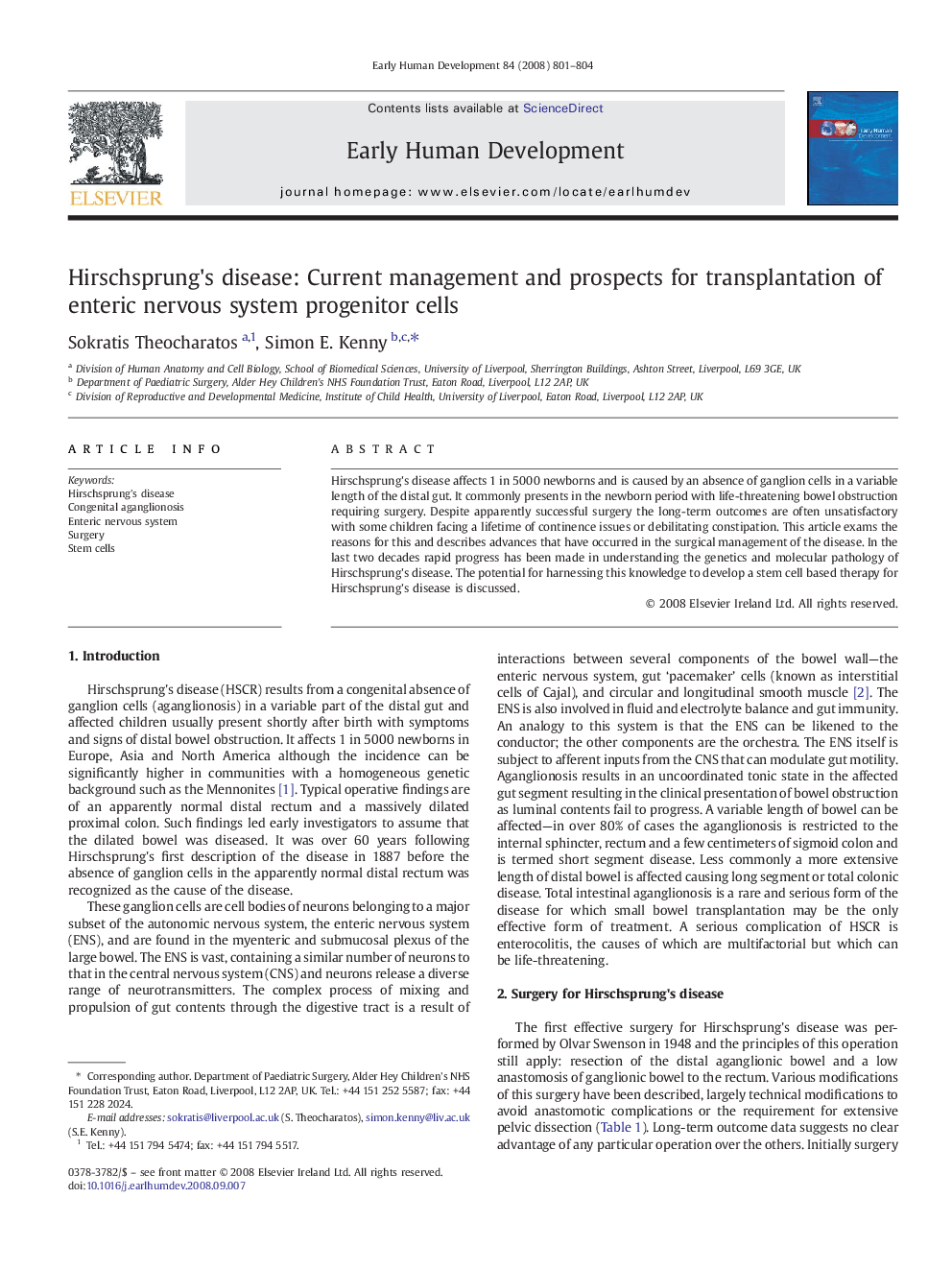| Article ID | Journal | Published Year | Pages | File Type |
|---|---|---|---|---|
| 3918062 | Early Human Development | 2008 | 4 Pages |
Hirschsprung's disease affects 1 in 5000 newborns and is caused by an absence of ganglion cells in a variable length of the distal gut. It commonly presents in the newborn period with life-threatening bowel obstruction requiring surgery. Despite apparently successful surgery the long-term outcomes are often unsatisfactory with some children facing a lifetime of continence issues or debilitating constipation. This article exams the reasons for this and describes advances that have occurred in the surgical management of the disease. In the last two decades rapid progress has been made in understanding the genetics and molecular pathology of Hirschsprung's disease. The potential for harnessing this knowledge to develop a stem cell based therapy for Hirschsprung's disease is discussed.
